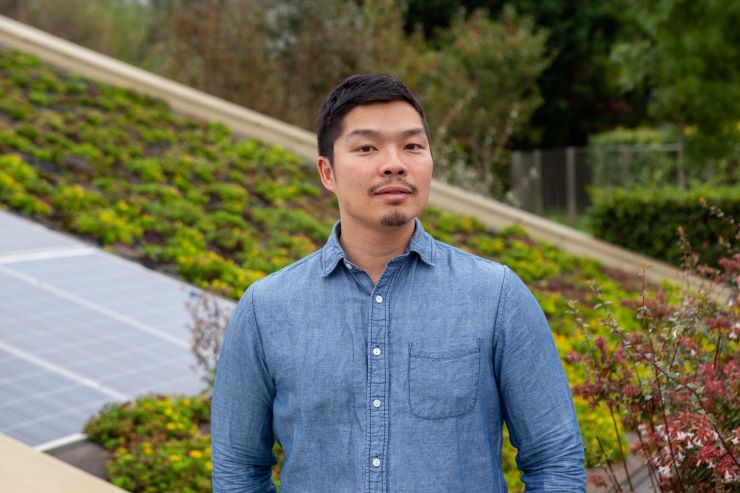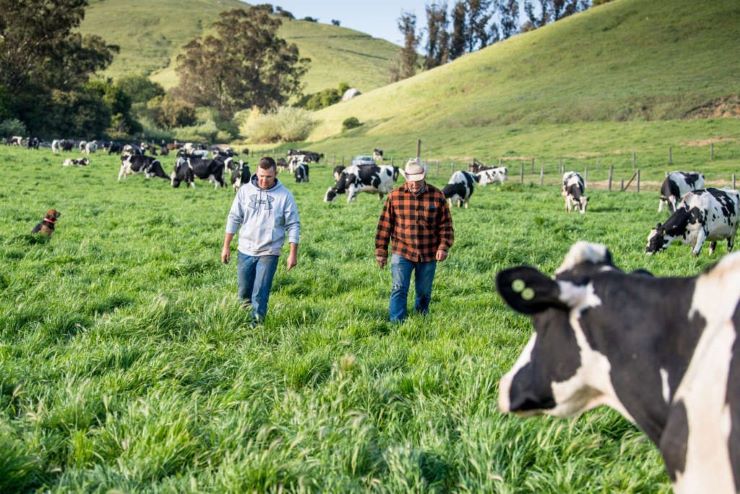Founded in 2018, Zero Foodprint connects food purchases to a climate solution. By teaming up with everyone from the food industry to farmers, Zero Foodprint provides a direct and actionable way to restore the planet, one acre at a time. Here, Anthony Myint, executive director of Zero Foodprint, discusses the organization’s climate change efforts, 2022 goals and how the pandemic was both a challenge and opportunity.
What prompted the start of Zero Foodprint? For me personally, it was having a daughter. When she was born, I was running a world-famous Chinese restaurant and we donated to the food bank to provide over one million meals to the community. But after becoming a parent, I started to think more about the future, the food system and nutrition. I came to realize that chefs and restaurants could be a big part of restoring the climate if the mechanism existed to organize the effort.
What is the greatest reward in being involved with Zero Foodprint? As we learned about regenerative agriculture, it became clear that it was the biggest story in food. The idea that billions of acres of agricultural lands can re-store emissions, removing them from the atmosphere, while also growing more nutritious and delicious food–it’s so optimistic that I really embrace my work.
What is the biggest challenge Zero Foodprint faces? Our biggest challenge is that we’re doing something brand new. Many great chefs and food system leaders have espoused buying good ingredients, but very few have teamed up with farmers and ranchers–financially–to build healthy soil. It’s taken complex collaborations with governments and local conservation experts to make it possible for each dollar to go directly and systematically toward the next regenerative practice on the next acre.
Has the pandemic affected the needs of Zero Foodprint? The pandemic has presented challenges and opportunities. On the one hand, restaurants are just scraping by and no one has bandwidth to tackle new projects. Many friends have closed their businesses. On the other hand, we’ve all come to realize how fragile food systems are and that we can, in fact, make wholesale changes and major adaptations as society changes.

Tell us how the Zero Foodprint program works. A business decides they want to become part of the solution to the climate crisis. They make it possible for their customers to feel great about every purchase by committing one percent of sales to regenerative agriculture, often at no cost, as an optional customer pass through. For customers, it’s a way to have a really meaningful and direct impact for just a few extra cents. We use these funds to team up with farmers and ranchers to apply compost, plant cover crops, reduce tillage and other regenerative practices that take carbon out of the atmosphere and re-store it as healthy soil. It’s a win-win-win.
What are your goals for 2022? I’m hoping we can get to 100 Zero Foodprint businesses in the United States and begin farm projects in more states and regions. The more restaurants, wineries and other food and beverage brands that join, the more regenerative we can make our food system!
How can our readers help? We’re always crowd-funding for regenerative agriculture, so anyone can sign up to send $10 per month to directly grow better food and restore the climate. Readers can tell anyone working in food or sustainability to join our program. And in terms of regenerative agriculture, readers can buy from great farmers and ranchers and prioritize composting.
Does Zero Foodprint have any events or fundraisers on the horizon? Yes! We’re launching a Healthy Soils Challenge with the Department of Agriculture and the Regenerative Recovery Coalition in Colorado on Oct. 11 with our newest member, the Denver Museum of Nature and Science, and stay tuned for some special collaborations that we’re cooking up in California. Remember, every night is a Zero Foodprint event when you dine with one of our members! You can also always give the gift of climate optimism to yourself or a loved one with our Give a Ton campaign. Each $48 contribution will help remove approximately one ton of CO2 from the atmosphere by investing in regenerative practices. It’s a small price for a ton of CO2 and a ton of good feelings.
To learn more about Zero Foodprint, visit www.zerofoodprint.org.

